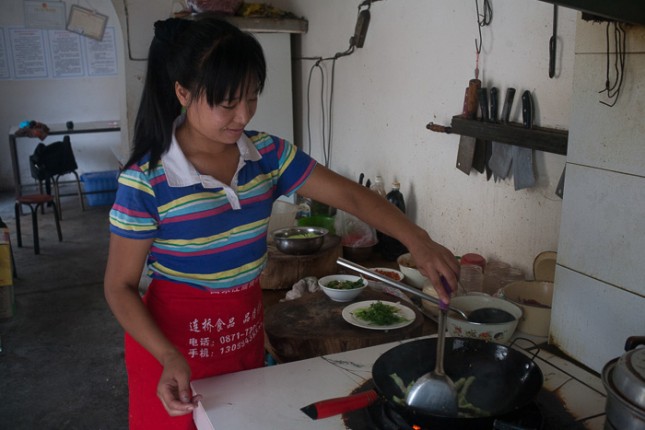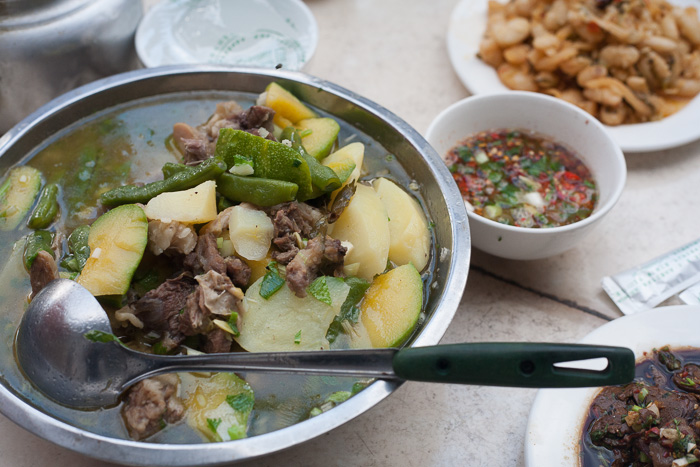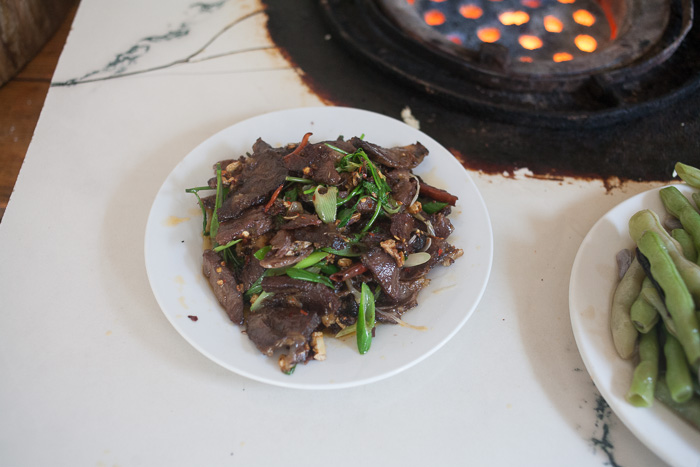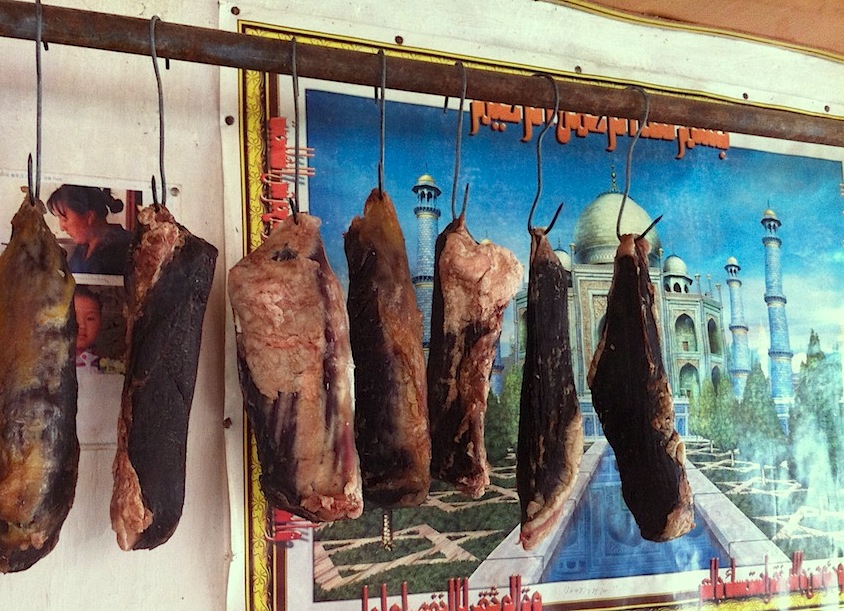The Hui in Yunnan
November 23rd, 2013

Li Yan and Ma Chunye start every day off by making a pot of beef stew. They wash and trim long pieces of deep-red beef shank and bamboo baskets full of tripe and other offal, which are scrubbed and rinsed repeatedly. Half of the beef shank is piled into a three-gallon stockpot and “red-cooked”—simmered in water, spices, and a caramel-like mixture of melted suet and sugar that gives it a deep color and a rich flavor. When the beef has cooked and cooled, it will be sliced into thin rounds, then stir-fried with garlic, dried chiles, and scallions or eaten cold, dressed with ginger, chile powder, sesame seeds, vinegar, soy sauce, and cilantro. The rest of the beef shank goes into an even bigger pot, along with some tripe, to cook in a simpler broth full of aromatics until it has become a “clear soup,” which is served with large chunks of potato and summer squash, thick green beans, and tender pieces of meat.

Beef “clear soup” with vegetables and a chile-based sauce to dip them into
Li and Ma’s restaurant specializes in these beef dishes because the women don’t cook pork. They and their families are part of China’s Hui minority, a group of Muslims who have lived in China for centuries.
The Hui are one of China’s largest ethnic groups, and more than 10 million Hui live throughout the country. Their ancestors first came to China from the Middle East during the 7th Century, when small groups of Islamic, Persian, and Arab scholars and traders settled in the central and southern parts of the country, and more arrived in the 13th Century, when the Genghis Khan and his descendants established the Yuan Dynasty and then proceeded to conquer much of the Middle East. Today’s Hui, however, are mostly members of the Han ethnic majority whose ancestors intermarried with the original Hui communities or converted to Islam.
The Hui first came to Yunnan in 1253, as soldiers during Kubilai Khan’s conquest of western China, and remained there as an occupying army under the leadership of General Saidanchi Zhansiding, a Central Asian Muslim who was appointed Governor of the province. Like Hui in the rest of China, these soldiers intermarried with locals and formed their own unique communities that blended local traditions with Islamic religious practices.

Stir-fried slices red-cooked beef with garlic, chiles, and scallions
Because the Hui specialize in cooking beef dishes, Hui-run restaurants are some of the most popular eateries in Yunnan. They can be found in nearly every town or city in the central part of the province and are invariably simple, no-frills places—like the Long Feng Muslim Restaurant in Shaxi— that are packed with locals enjoying dishes that combine local ingredients and flavor profiles with the Hui proprietors’ expertly butchered, aged beef.

Cuts of beef aging in the dining room of Shaxi’s Long Feng Muslim Restaurant
These restaurants are usually family affairs, and Li and Ma’s place (called, simply, “Hui Minority Restaurant”) is no exception. The women are sisters-in-law, and their kids, husbands, and other relatives pop in and out of the little concrete and tile-walled kitchen, sometimes staying to help out a bit. Come lunch or dinner time, diners from all around the rest of the small city come too, crowding around tables set up in the restaurant’s small back room or just outside the kitchen door along the edge of the wide, usually empty street, and ordering dish after dish of rich, flavorful beef.

Photos: Josh Wand (3), Georgia Freedman, Josh Wand



